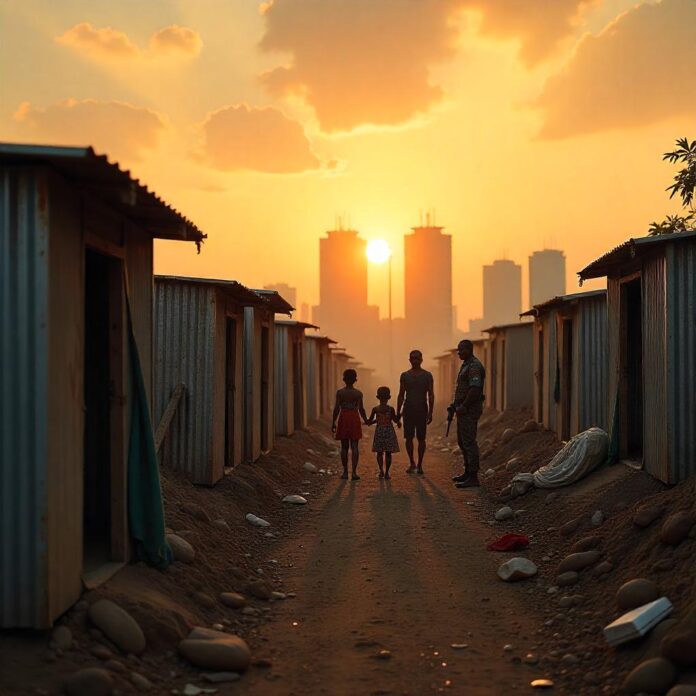The relentless push toward urbanization in Nigeria is manifesting in an ambitious vision: a constellation of ten new smart cities planned along the economically vital Lagos-Abuja corridor. While governments tout these projects—like Eko Atlantic near Lagos and Centenary City near Abuja—as symbols of progress and technological leapfrogging, a darker narrative of displacement by development is unfolding. As Lagos climbs in global smart city rankings and Abuja improves, the human cost of this progress threatens to erase historic communities and deepen socio-economic divides.
The Smart City Surge: Progress Amidst Displacement
The $16 billion Lagos-Abuja Super Highway/High-Speed Train Project promises transformative infrastructure: 500km of 8-lane highways, high-speed rail, 13 toll points, and an independent power plant. At its core lies a staggering ambition—ten new smart cities and one million housing units targeting elite investors and foreign capital. This aligns with a continental narrative where over twenty smart cities are under construction to showcase AI-driven infrastructure and digital governance.
Yet rankings mask harsh realities. While Lagos and Abuja climbed modestly in global smart city indices, the same reports flag persistent challenges in affordable housing and basic services—issues exacerbated by land-intensive new developments. Projects like Eko Atlantic and Centenary City sit on land once home to fishing communities and informal settlements, raising urgent questions about who benefits when cities grow smarter.
Mechanisms of Displacement
Land acquisition for these cities of tomorrow follows a ruthless playbook. Ambiguous land tenure laws—particularly around unregistered ancestral lands—enable state actors to label communities illegal occupants. Land is seized via eminent domain for urban renewal, then transferred to private developers for luxury complexes. Demolitions deploy armed police and vigilantes, leaving residents minutes to flee with only their clothes.
How Land Grabs Unfold
These patterns manifest through specific tactics. Legal shadows exploit Nigeria’s complex land ownership systems, where ancestral claims often lack formal documentation. The public purpose justification sees land seized for vague communal benefits that later transform into private luxury enclaves. Bulldozer diplomacy involves pre-dawn raids with heavy machinery, creating humanitarian crises as families lose everything overnight.
Case Studies: Communities Erased, Futures Stolen
The human toll materializes in shattered lives. Ilaje-Otumara, a 105-year-old Lagos waterfront community, vanished under bulldozers with fifteen days’ notice. Fisherwoman Yemi Oladapo, a single mother of three, lamented the loss of her home, nets, boat, and children’s school certificates. Eko Atlantic, built on reclaimed ocean land, displaced Otodo Gbame slum-dwellers without resettlement, pushing families into overcrowded ghettos. Abuja’s Centenary City annexed farmlands belonging to Gbagyi indigenous groups, who received no compensation, losing ancestral ties and income streams.
These patterns echo globally. In post-disaster zones, working-class residents face predatory land offers from speculators within days of losing everything. The trauma extends beyond material loss to severed cultural roots and community bonds that sustained generations.
The Ripple Effect: Who Pays? Who Profits?
Displacement triggers cascading crises. Luxury developments inflate rents in surrounding areas, with Lagos and Abuja already ranking among Africa’s worst for housing unaffordability. Displaced populations relocate to peri-urban slums, straining water access and healthcare. Land values near smart cities appreciate up to five hundred percent during planning phases, with gains flowing to elites and foreign funds—not original residents.
Teachers, fishers, and artisans find themselves exiled from neighborhoods their families inhabited for generations. The social fabric frays as support networks disintegrate, children are uprooted from schools, and informal economies collapse. The promise of modern cities creates sacrifice zones where the poor subsidize progress they cannot access.
Resistance and Alternatives: Toward Inclusive Development
Communities and advocates fight back with ingenuity. Legal shields challenge evictions in court, citing violations of fundamental human rights charters. The people’s smart city vision proposes community-led upgrading of informal settlements using appropriate technology: solar microgrids, rainwater harvesting, and digital land registries. Policy levers like post-disaster moratoriums on predatory land offers demonstrate how governments can protect vulnerable residents from speculators.
Initiatives across African cities prove alternatives work when communities co-design solutions. Inclusive schools and clinics demonstrate that upgrading existing neighborhoods creates more equitable outcomes than demolition-driven development. The fundamental question remains whether technology serves people or becomes another tool of exclusion.
Smart for Whom?
The Lagos-Abuja corridor smart cities embody a brutal paradox: they are technologically advanced yet socially regressive. Without legal overhauls prioritizing community land rights and inclusive planning, these projects risk becoming islands of wealth in seas of displacement.
As bulldozers roll in, the question lingers: Can a city be smart if it erases its people’s past? The answer lies not in concrete, but in conscience. Development that displaces the vulnerable is not progress—it’s privilege with concrete.
Key Recommendations to Curb Displacement
Transparent Land Audits: Publish project maps pre-approval, identifying affected communities. Resettlement Bonds: Mandate developers to fund certified replacement housing through community land trusts. Adopt the Barcelona Model: Retrofit existing neighborhoods with technology for leak detection and safety—prioritizing upgrades over evictions. Digital Inclusion: Train displaced youth for tech jobs in new cities, turning victims into stakeholders.


